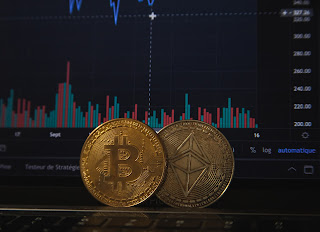The multi-crypto wallet program Trust Wallet allows users complete control over their digital assets, including cryptocurrencies and non-fungible tokens (NFTs). It is Binance's official cryptocurrency wallet that supports over 4.5 million cryptocurrencies, including NFTs, along with 65 different blockchains, including Bitcoin, Ethereum, Tron, and Ripple. Additionally, it offers access to decentralized applications (DApps).
On both Android and iOS, the Trust Wallet app is available for free download through the PlayStore or AppStore. There is also the Trust Wallet Browser Extension. The platform has amassed over 10 million active users thanks to its easy-to-use, dynamic user experience.
What is the Process of Trust Wallet?
When using Trust Wallet on a mobile device, every blockchain is immediately available after installing the software. Trust Wallet does not reveal the personal information of its users to any outside parties and only exchanges contact information as necessary for the transaction. Users retain exclusive control over their private keys or seed phrases and Trust Wallet does not hold any of their money.
Through the utilization of its nodes, Trust Wallet serves as a mediator to connect several blockchains. It now supports over a thousand different cryptocurrencies and has a reliable system for transferring, receiving, and storing them.
Browser DApp Built-In
Access to numerous DApps created on the Ethereum blockchain and the Binance Smart Chain is made simple with the help of Trust Wallet. This implies that you don't need to log in to use the DApps on the Trust Wallet mobile app directly. The Trust Wallet team evaluates each DApp to make sure that only the most reliable DApps are used. Trust Wallet supports DApps like PancakeSwap, OpenSea, and Uniswap. The DApps are also mobile device optimized so that users may easily access them whenever and wherever they choose.
Supports NFT's
You can easily manage your crypto NFTs and game assets using Trust Wallet. Ethereum and Binance Smart Chain NFTs are currently supported in full by the Trust Wallet app. Alternatively, you can trade an NFT from a supported NFT marketplace DApp like OpenSea. You can relocate your current NFTs to store them in Trust Wallet.
Crypto Stake
Even better, if you stake cryptocurrencies using Trust Wallet, you can earn interest on the coins you own. The Trust Wallet software offers a wide range of staking choices, including BNB, XTZ, and KAVA.
Exchange and Swap
Additionally, Trust Wallet includes a built-in decentralized exchange (DEX) that enables cross-chain trading. You might exchange BEP-2 tokens for BEP-20 tokens, for instance. The Trust Wallet DEX will charge a network fee for trade.
Do Trust Wallet Fees Apply?
Trust Wallet doesn't charge any fees for swapping or other transactions, in contrast to the majority of crypto wallets. On Trust Wallet, the blockchain where the token is stored will impose a transaction fee known as a network fee. For instance, the corresponding gas fees must be paid if you decide to transact ETH or an ERC-20 token on the Ethereum blockchain. To better control your transactions, Trust Wallet enables you to establish your own network costs. You can increase your network fees for urgent transactions to speed up processing, and you can drop them for less urgent ones to save money.
Additionally, there are no additional fees associated with using DApps in Trust Wallet. Third-party providers will charge you fees if you decide to buy cryptocurrency using Trust Wallet, but Trust Wallet does not charge fees on top of these fees.
Trust Wallet is still a popular wallet, therefore phishing attacks can still target it. Phishers can quickly obtain seed phrases from phishing websites and access a user's wallet. Lost money can never be retrieved because of the decentralized structure of cryptocurrencies. Therefore, in order to prevent a permanent loss of funds, it is imperative that you never disclose your seed phrase to anybody or even make a digital copy of it. Always make sure you're on your wallet's official website before logging in because there are fake websites out there that are made to look like genuine wallet sites in order to steal your cryptocurrency.
More Articles Below









